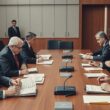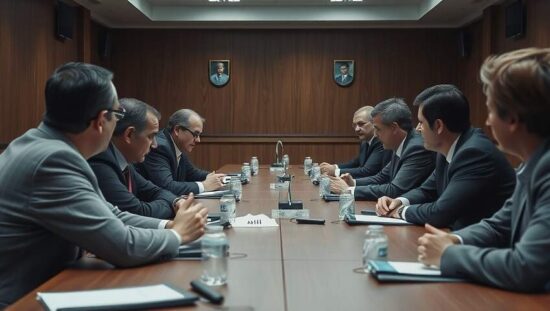The call for reform of the United Nations Security Council has been forcefully reiterated by Annalena Baerbock, the current President of the UN General Assembly, though she cautions against expecting rapid progress during her tenure. In an interview with Politico, Baerbock acknowledged the deeply entrenched roadblocks hindering comprehensive change, stating that a significant breakthrough within her one-year term is unlikely. Instead, she advocates for a gradualist approach, emphasizing incremental improvements like enhanced transparency and mechanisms requiring explanations following veto exercises.
Despite acknowledging the frustrations surrounding the UN’s operational effectiveness, Baerbock passionately defended the organization’s relevance, arguing that its absence would diminish global security for all nations. She underscored the imperative to overcome existing “blockades” and modernize the UN, proposing strategic consolidation of agencies, a greater emphasis on local employment and integration of artificial intelligence to address a deepening financial strain. “The pressure on this organization’s finances is so considerable, it is abundantly clear we must critically examine its core functions” she remarked.
The discussion surrounding the next UN Secretary-General, succeeding António Guterres, saw Baerbock openly advocating for a female candidate. This plea is rooted in a critique of the organization’s historical record: “An organization championing women’s and human rights has not, in eighty years, managed to place a woman at its helm. That is simply no longer acceptable for our time.
Addressing the role of the United States, Baerbock expressed guarded optimism, recognizing ongoing criticisms of multilateralism while appreciating the continued support of a significant global power. She stressed the importance of major nations assuming responsibility and upholding the UN Charter, reinforcing its foundational principles. The UN, she believes, must remain the critical forum for resolving disputes and forging solutions, however difficult the process.
Highlighting Germany’s renewed candidacy for a non-permanent Security Council seat, Baerbock pointed to the nation’s historical responsibility within the international body. Simultaneously, she acknowledged the escalating calls for greater representation, particularly from Africa and Latin America, mirroring a broader demand for a more equitable distribution of power within the UN system. This reflects a complex dynamic, balancing Germany’s ambition with the mounting pressure for a more inclusive global governance structure.





